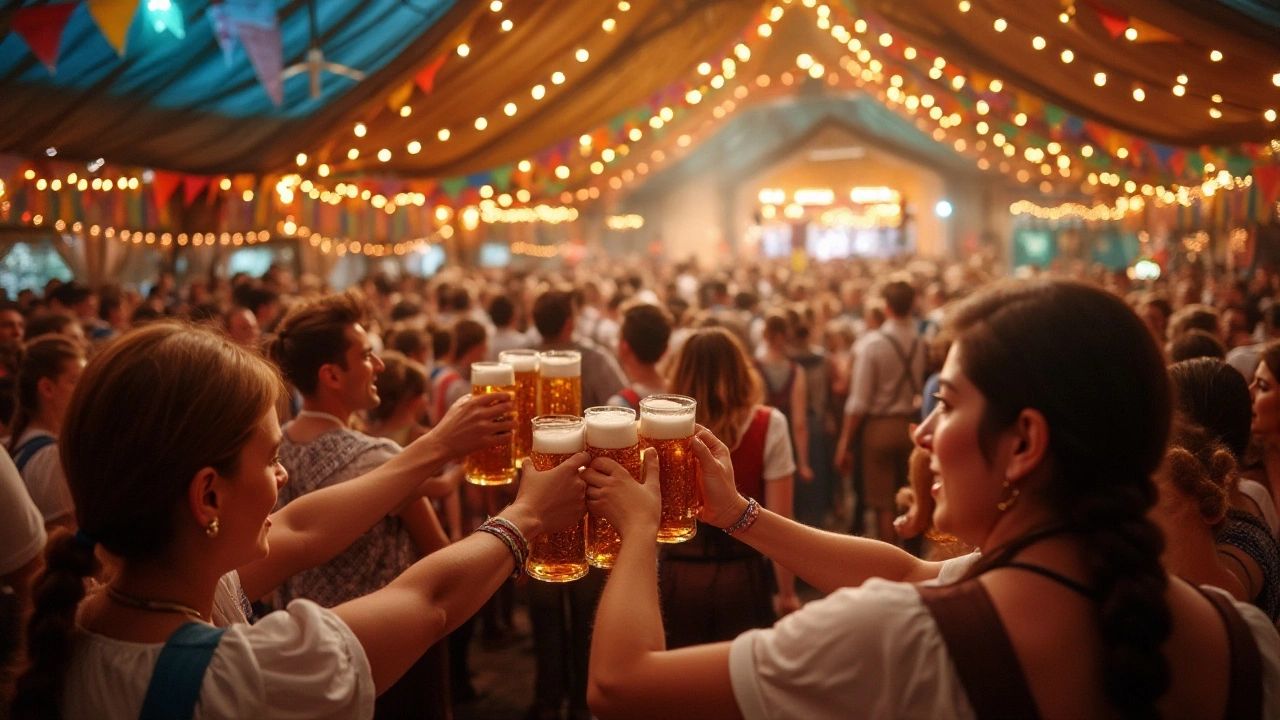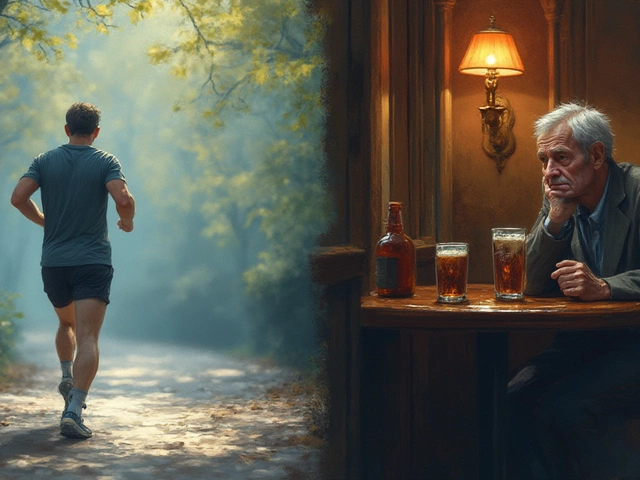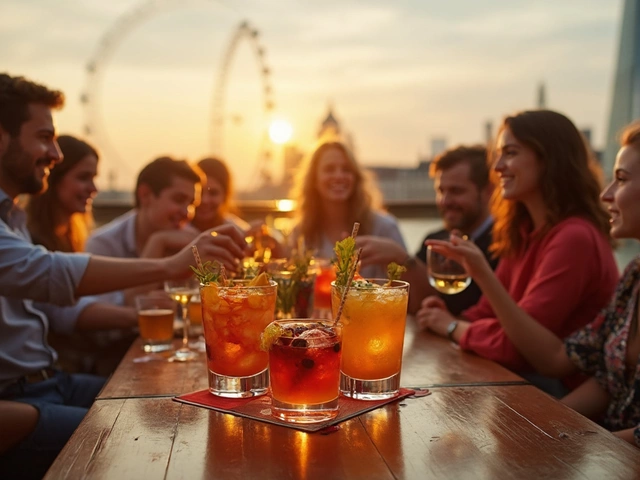When it comes to beer festivals, none can quite rival the legendary Oktoberfest held in Munich, Germany. Every year, this Bavarian extravaganza draws millions of visitors eager to experience its unmatched enthusiasm and celebrate all things beer.
Dating back to 1810, Oktoberfest has a fascinating history intertwined with local traditions and royal weddings. It's grown from a regional celebration to a global phenomenon, complete with music, parades, and, of course, plenty of beer. Whether you're a seasoned festival-goer or a curious newbie, there's something magical about being part of this worldwide gathering.
In addition to the beer, Oktoberfest is teeming with attractions and activities. From the vibrant costumes to the thrilling rides, and the delicious assortment of Bavarian dishes, the festival provides a sensory feast that captivates all who attend.
- History of Oktoberfest
- Oktoberfest Activities and Attractions
- Tips for First-Time Visitors
- Lesser-Known Oktoberfest Facts
History of Oktoberfest
The origins of Oktoberfest trace back to the early 19th century, a time when Bavaria was shaping its identity through celebration and unity. The first Oktoberfest was held in October 1810 in Munich to mark the royal marriage of Crown Prince Ludwig, later known as King Ludwig I, and Princess Therese of Saxe-Hildburghausen. The citizens of Munich were invited to join in the grand celebration, which took place over five days on the fields in front of the city gates. Unlike today, the festival was not centered around beer but rather a grand horse race which drew thousands of spectators, and it set the stage for what would become an enduring tradition.
After the royal wedding festivities concluded, the decision was made to repeat the event in 1811 as a way to promote Bavarian agriculture, and thus an annual tradition was born. Over the years, the event evolved considerably, both in size and scope. By the mid-19th century, Oktoberfest had begun incorporating the beer tents that are now synonymous with the festival, as local breweries saw an opportunity to showcase their brews to festival-goers. It was around this time that the festival also moved its dates to September in an effort to take advantage of better weather conditions, allowing for a more enjoyable experience.
The influence of Bavarian culture in shaping Oktoberfest cannot be overstated. By the turn of the 20th century, the festival featured attractions such as carousels and games, enhancing its appeal to a broader audience. Families and visitors flocked to partake in the jubilant atmosphere, making it a celebration not just of beer, but of community and kinship. One interesting tradition that emerged was the tapping of the first keg, a task performed by the Mayor of Munich. This taps into the very ceremonial heart of the event, symbolizing the official start of Oktoberfest every year.
"Oktoberfest is not merely a festival; it is a reflection of Bavarian tradition, a window into the heart of German history," noted cultural historian Dr. Alois Dallmayr.
World War I and II brought with them disruptions, leading to the temporary suspension of Oktoberfest. However, its revival afterward marked a symbolic resurgence, a testament to its resiliency and cultural significance. Today, this festival stands as a vibrant symbol of Bavarian culture, drawing six million visitors annually from across the world. The event echoes its storied past, with horse races now traded for parades and the open fields transformed into a bustling carnival brimming with joy and camaraderie.
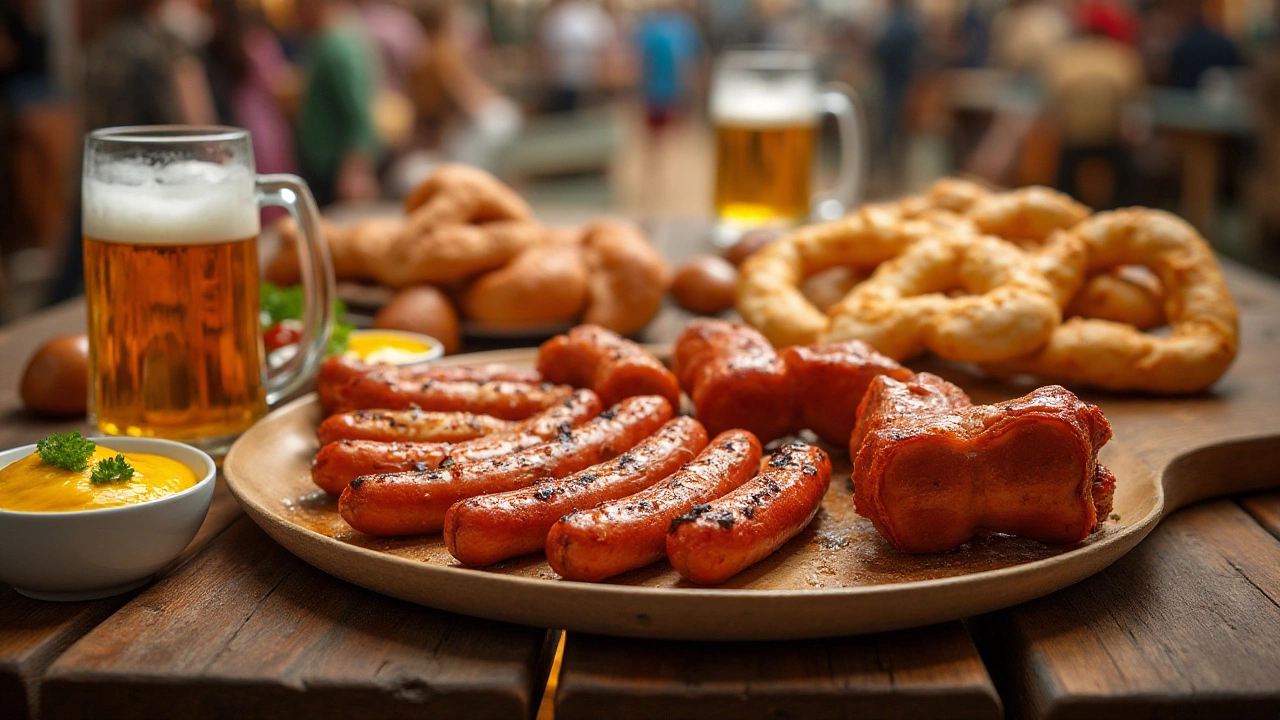
Oktoberfest Activities and Attractions
Oktoberfest is a whirlwind of excitement, offering an abundance of activities and attractions for every visitor. At the heart of it all, you'll find the grand beer tents, each boasting its own unique atmosphere and brew specialties. These tents, operated by Munich’s historic breweries, are architectural marvels themselves, designed to host thousands of merry revelers. Visitors are treated to everything from classic Märzen to specialty Oktoberfest beers. It's not uncommon to find yourself swept up in the camaraderie of strangers, united through song and stein, as you savor the best of what German beer can offer.
No authentic Oktoberfest experience is complete without diving into its rich array of cultural attractions. Traditional Bavarian music fills the air, often led by charismatic bands clad in lederhosen. The music is infectious, inviting one and all to sway and sing along. You can also witness colorful parades showcasing elaborate floats that capture the essence of Bavarian heritage. Dance performances and folk play are plentiful, bringing the customs and stories of the land to vivid life before your eyes. If you wish to sport the local attire yourself, stalls selling lederhosen and dirndls provide the ultimate souvenir.
Beyond the beer and costumes, Oktoberfest is a paradise for food lovers with its delectable assortment of Bavarian cuisine. Where else can you feast on pretzels the size of your head, sausages grilled to perfection, or sweet pastries like Apfelstrudel? The festival prides itself on serving traditional dishes that pair perfectly with a pint. The smells alone prompt an appetite, as you walk past stalls and tents offering warm, comforting delights. It's no surprise that seasoned visitors plan their meals strategically, finding time to sample as many dishes as possible—a culinary adventure worth the endeavor.
According to the Munich City Council, "Oktoberfest is not just about beer; it's a celebration of community and culture, drawing people from all walks of life."
For those with a penchant for thrill, the festival's amusement park adds yet another layer of excitement. From classic fairground attractions like carousels and haunted houses to towering roller coasters that pump the blood, the rides cater to all ages. Children and adults alike find pleasure in the vibrant mix of sights and sounds that the fairgrounds offer. And the joy is not confined to just the rides; the hustle and bustle of games and prize stalls make it a popular spot for competitive spirits and families seeking light-hearted fun.
To better prepare, consider the variety of activities available across the festival grounds. Planning your day's adventures, from securing a spot in a popular tent to ensuring you catch the midday parade, will help you make the most of your time. Here’s a snapshot of activities often found at Oktoberfest:
- Daily parades showcasing Bavarian costumes and culture.
- Interactive folk games and competitions.
- A selection of more than a dozen unique beer tents.
- Live musical performances occurring throughout the day.
- Culinary areas dedicated to traditional and modern Bavarian dishes.
- Amusement park zone with rides for all age groups.
These attractions ensure that Oktoberfest is as rich in experiences as it is steeped in history, providing memories to cherish long after the last stein of beer is raised.
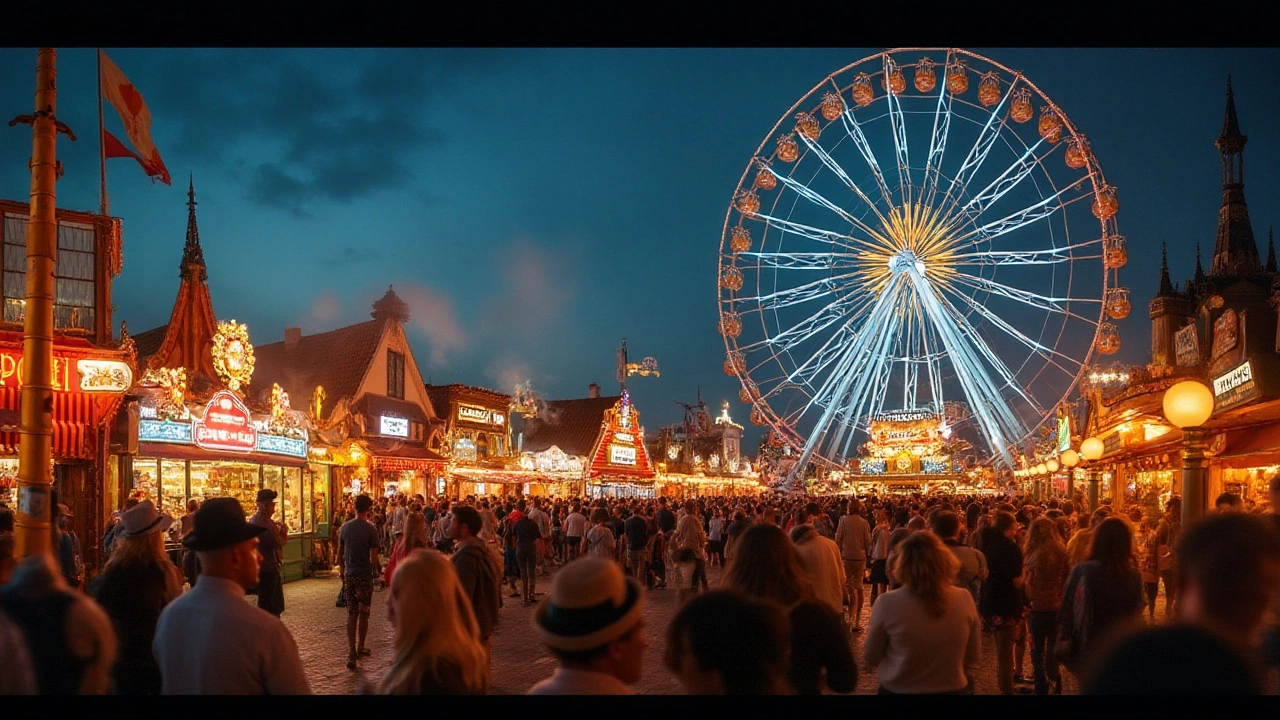
Tips for First-Time Visitors
Stepping into the lively atmosphere of the Oktoberfest for the first time can be quite an overwhelming experience. If you’re planning to immerse yourself in this cultural extravaganza, a little preparation can go a long way. Let's start with timing. The festival typically kicks off in late September and runs through the first weekend in October, lasting about 16 to 18 days. For the best experience, try to visit during the weekdays when the crowds are smaller, making it easier to navigate the bustling spaces and secure a place to sit and soak in the atmosphere.
Finding your way around the festival grounds in Munich, also known as the Theresienwiese, is essential. It’s a vast area filled with numerous beer tents, each tagging along its unique vibe. While some tents cater to regional specialties, others boast international themes. The success of your visit could hinge on choosing the right tent that aligns with your interests. It's advisable to arrive early, especially in the evenings and on weekends, as seats fill up rapidly and entry can become restricted once capacity is reached. Remember, a friendly demeanor goes a long way in securing a spot among the locals who might be willing to share their table with you.
Consider dressing the part! Sporting traditional Bavarian attire adds to the fun and helps you blend in with the crowd. For men, that’s the iconic lederhosen, and for women, the vibrant dirndl. These outfits are not just traditional but practical too, allowing movement and comfort as you indulge in the festivities. To truly immerse yourself in the Bavarian culture, take the time to learn a few German phrases; it’s appreciated by locals and enhances your engagement with the community. Now, let’s not forget the food. Oktoberfest isn't only about beer. The hearty Bavarian cuisine is an integral part of the celebration. From pretzels larger than your head, to grilled sausages and roasted chicken, you're in for a culinary treat.
According to German historian Manfred Vasold, "The Oktoberfest offers a unique insight into Bavarian culture and is a celebration of tradition and camaraderie in its purest form."
Managing your budget is crucial. The Oktoberfest isn’t the cheapest festival, but with thoughtful planning, it doesn’t have to break the bank. Pricing can be steep, with liters of beer costing more than ten euros. To keep expenses under control, consider setting a daily budget for drinks and meals. It's also wise to have cash on hand, as not all vendors accept card payments.
Lastly, safety is paramount. With the large crowds and flowing German beer, keeping an eye on your belongings and staying hydrated is essential. Make sure to plan your trip back to your accommodation in advance, as public transport can be crowded and taxis scarce. Taking these tips to heart will help ensure your first visit to the storied Oktoberfest is filled with unforgettable memories and an authentic taste of this celebrated beer festival.
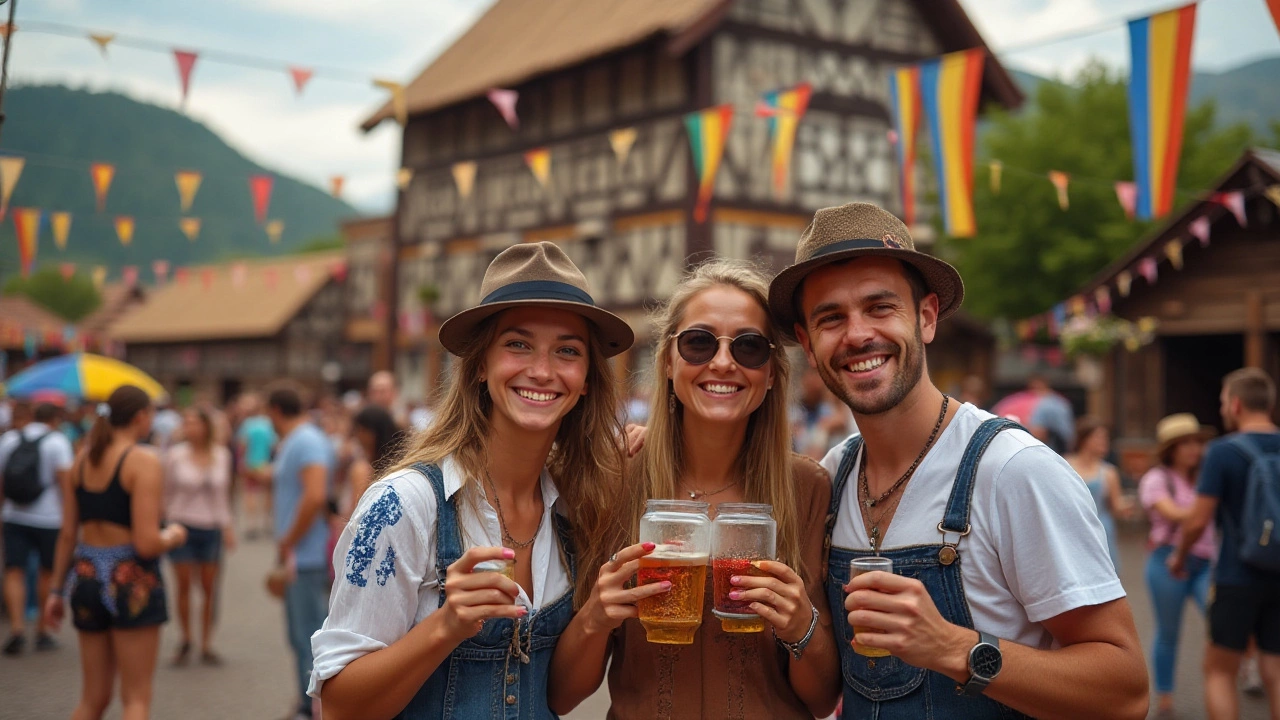
Lesser-Known Oktoberfest Facts
While Oktoberfest is famously known for its lively atmosphere and copious amounts of German beer, there are numerous intriguing facets of this historic festival that often go unnoticed. To start with, the event actually begins in September. Contrary to what the name might suggest, the festival kicks off in late September and typically wraps up in the first weekend of October. The historic decision to shift the celebration to September was based largely on the weather. Better weather equaled safer, warmer times for revelers, making enjoying the festival without winter attire much more feasible.
An oft-overlooked fact about Oktoberfest concerns its opening ceremony. People might think it’s just another festival kick-off, but there’s a whole tradition to it. The festival commences with a grand parade, led by the Münchner Kindl, Munich's historic city symbol. The true start, however, involves the Mayor of Munich hammering the tap into the first beer barrel and declaring “O’zapft is!” which means “It’s tapped!” only then can the beer really start flowing throughout the tents. Rumor has it, the number of hits it takes the Mayor to tap the first keg becomes the topic of enthusiastic debate amongst locals.
Delving into the beer itself, it is interesting to note that only six local breweries are allowed to brew the official beer for Oktoberfest. These include the renowned brands like Spaten, Hacker-Pschorr, and Hofbräu. Every drop consumed at the festival comes from these historic breweries, ensuring that the beer quality remains consistently top-tier. Collectively, these breweries produce a special Märzen lager that is brewed specifically for the festival; it's slightly stronger with an aroma that is signature to Munich’s autumn air. This exclusivity is strictly regulated and forms part of the festival’s unique appeal.
Oktoberfest is not merely about beer either. It’s woven into the fabric of Bavarian culture, from the traditional costumes like Lederhosen and Dirndls to the decorative, onion-domed beer tents that host the sea of joyous festival-goers. Each tent has its own personality, ranging from the party-heavy environs of the Hofbräu-Festzelt to the quieter, more intimate setting of the Kafer Wiesn-Schänke. In 2019, for example, nearly seven million visitors flooded to Munich to partake in the revelry—evidence of its continuing magnetism. Among those, it’s said that nearly 13% are international visitors, drawn by the allure of authentic German beer culture, solidifying Oktoberfest’s reputation as a truly global event.
"The Oktoberfest experience is like no other. It's a gathering of the world under the Bavarian sky, united by a unique bond of fellowship and tradition," noted beer historian Michael Jackson in his writings about beer festivals.
Beyond the festivities, there's also a social component to Oktoberfest. The festival reportedly had its origins in a royal wedding party in 1810, for the marriage of Crown Prince Ludwig and Princess Therese. What started as a royal horse race turned into an annual event, capturing the heart of Bavaria and eventually the world. Today, it serves as a time for Munich to shine, not only as a stage for merriment but also as a platform for cultural exchange. During the festival, visitors engage with Bavarian history through dances, foods, and countless cultural displays. A little-known fact includes the staggering amount of industrial organization behind the event: each year it employs thousands of people, from bartenders to entertainers, making it a significant economic event for the region.
